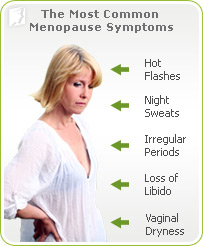About the flu virus
Flu occurs most often in winter and usually peaks between December and March. There are 2 main types of flu:
- influenza A
- influenza B
The flu virus changes and new strains are constantly emerging. This is why the flu vaccine should be given each year.
Flu symptoms and treatment
It is important that you recognise the symptoms of flu and seek medical advice straight away, particularly if you are in one of the 'at-risk' groups and haven’t been vaccinated previously. People in the 'at-risk' group include women who are pregnant or have recently had a baby, and those who have long-term medical conditions.Flu information for pregnant women and new mothers
Flu information for people with long-term medical conditions
What are the symptoms of flu?
If you come into contact with someone who has flu, it can take between 1 and 8 days for symptoms to develop. These include:- fever of 38 C or more
- headaches
- fatigue
- lack of appetite
- coughing and sore throat
- joint / muscle pain
What should I do if I think I have flu?
If you have a temperature and suspect you could have flu, you should ring your GP for advice, particularly if you are in an 'at-risk' group and especially if you have not been vaccinated.Most people with flu make a full recovery from the disease with rest, drinking plenty of fluids and taking paracetamol, and do not require medical attention or antiviral medicine. However if you are in an ‘at risk’ group or you have more severe symptoms you should contact your GP.
Can you have flu without having symptoms?
Flu can occur without symptoms. If you don’t have symptoms, the risk of spreading infection is very low.
مرسلة بواسطة
مدونة
في
8:01 ص
.
Many women experience some physical and emotional symptoms during
menopause, caused by hormonal imbalance. Typically, a woman will begin
to experience menopause symptoms around her mid-40's as her body's reproductive capability comes to the end.
 This prolonged stage of gradually falling and
fluctuating hormone levels is called perimenopause, which can last
upwards of two years before a woman's final period. For most women,
peri menopause symptoms end at menopause; however, some symptoms will
continue.
This prolonged stage of gradually falling and
fluctuating hormone levels is called perimenopause, which can last
upwards of two years before a woman's final period. For most women,
peri menopause symptoms end at menopause; however, some symptoms will
continue.
was designed to guide women through the menopausal transition with knowledge, ease, and peace of mind. It contains helpful information about menopause treatments and practical suggestions for relieving menopause symptoms.
Women can look here for expert advice on any of the 34 menopause symptoms, whether it be hot flashes, night sweats, irregular periods, loss of libido, and vaginal dryness, or any other.
.
الاشتراك في:
الرسائل (Atom)
